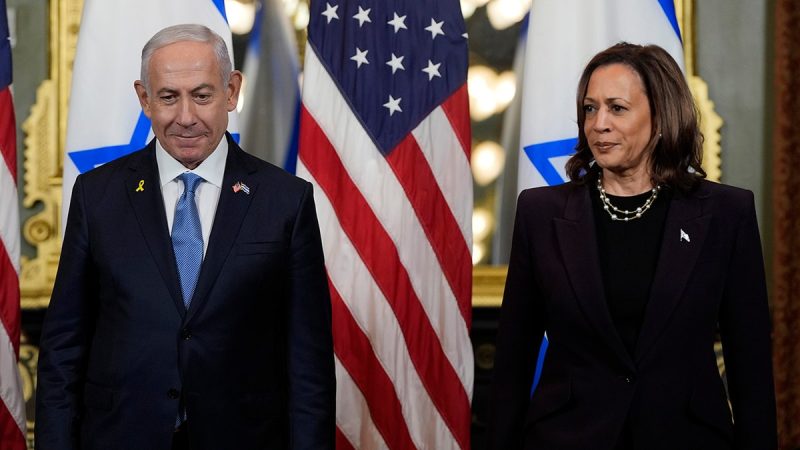In recent news, Israeli Prime Minister Benjamin Netanyahu has reportedly expressed his dissatisfaction with the statements made by U.S. Vice President Kamala Harris regarding Israel, prompting tension between the two leaders. The Israeli Prime Minister is said to be upset with Harris over her remarks on the Israeli-Palestinian conflict, which he perceives as lacking support for Israel’s positions and concerns.
The disagreement between Netanyahu and Harris stems from a series of comments made by the Vice President during her recent trip to the Middle East. Harris, while affirming the United States’ commitment to a two-state solution, emphasized the importance of addressing the root causes of the conflict and ensuring equal rights and opportunities for both Israelis and Palestinians. This stance has evidently not sat well with Netanyahu, who is known for his staunch support of Israel’s security and interests in the region.
Netanyahu’s frustration with Harris’s remarks highlights the complexities of the U.S.-Israel relationship and the challenges of navigating the sensitive issue of the Israeli-Palestinian conflict. While the United States has long been a key ally and supporter of Israel, divergent perspectives on how to achieve peace and stability in the region can lead to disagreements and tensions between leaders of the two countries.
The White House, however, has pushed back against reports of tensions between Netanyahu and Harris, emphasizing the strong and enduring partnership between the United States and Israel. White House officials have reiterated the Biden administration’s commitment to working closely with Israel on a range of regional and global issues, while also acknowledging the need for dialogue and diplomacy to address the Israeli-Palestinian conflict.
Despite the reported discord between Netanyahu and Harris, it is essential for both countries to continue engaging in constructive dialogue and collaboration to advance shared interests and work towards long-term stability in the region. The U.S. role as a mediator and facilitator in the Israeli-Palestinian conflict remains crucial, and finding common ground between all parties involved is vital for achieving a lasting and just resolution to the longstanding dispute.
As tensions persist between Israeli Prime Minister Benjamin Netanyahu and U.S. Vice President Kamala Harris over their differing views on the Israeli-Palestinian conflict, it is imperative for both leaders to maintain open communication and strive for mutual understanding and cooperation. Only through diplomatic efforts and respectful dialogue can progress be made towards achieving a sustainable peace in the Middle East.




























